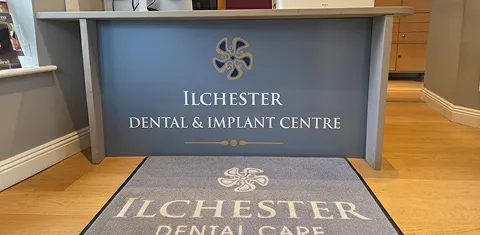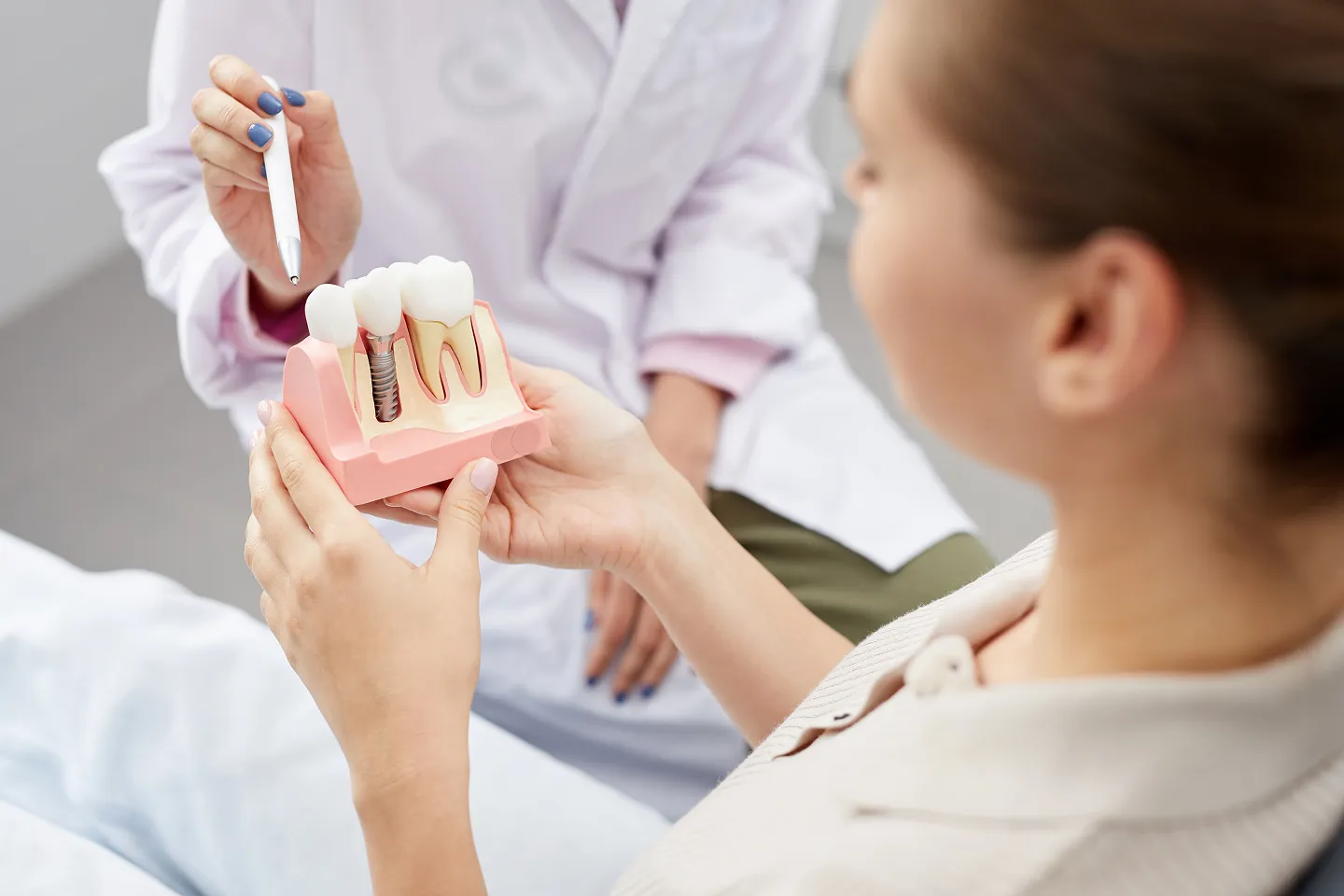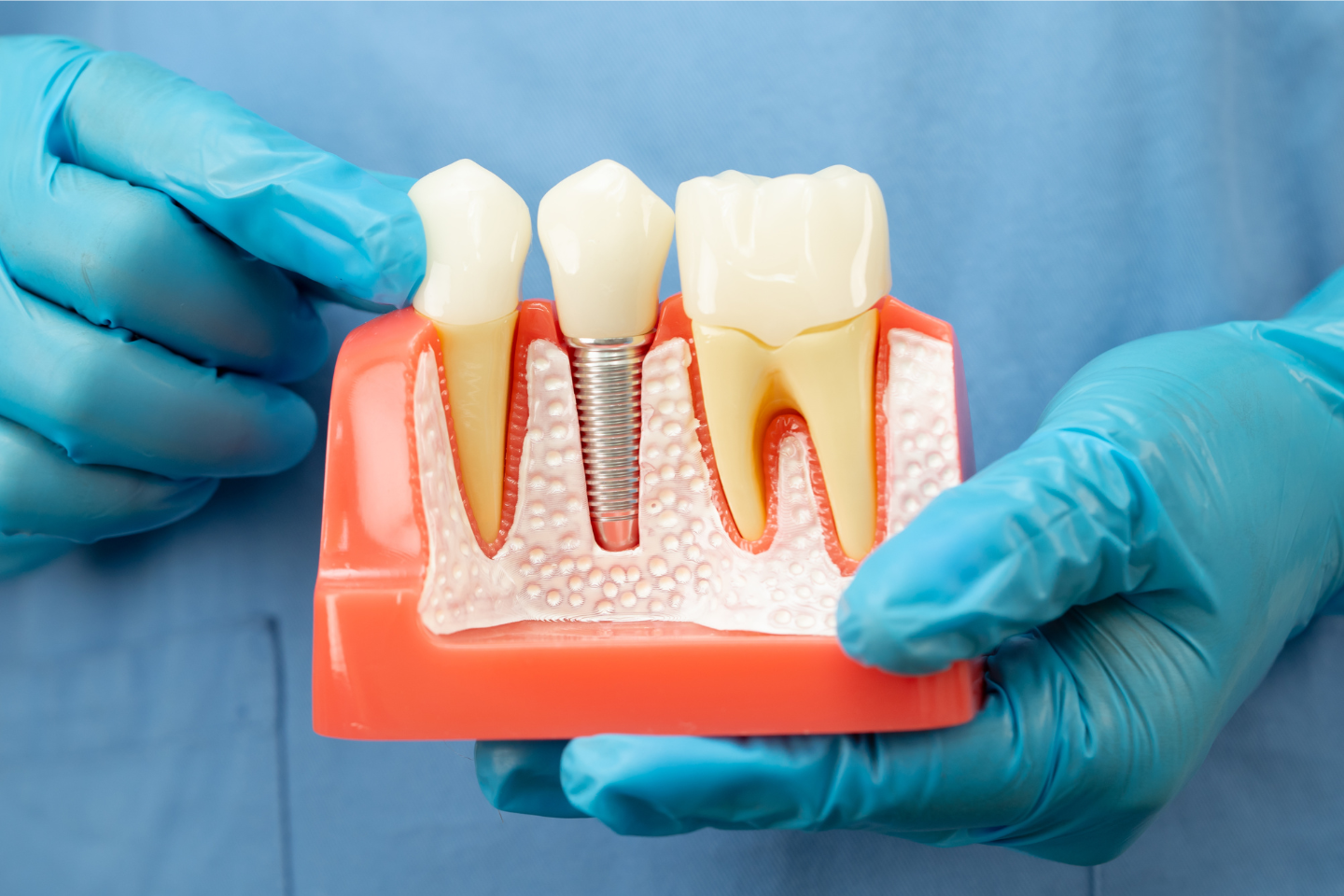At our comfortable, state-of-the-art Practice in Yeovil, you’ll be able to experience the most advanced and reliable dental implant solutions on the market.
Our expert clinicians use their years of experience to craft personalised, comfortable, and seamless treatment pathways to rejuvenate our patients’ smiles. Utilising the latest in technology and technique, we can help you restore your confidence and increase the functionality of your teeth using high-quality, highly durable dental implants. Let us help you towards a radiant smile and a healthier mouth today.
A dental implant restoration is the closest thing to a natural tooth you can find. It starts with an artificial root which stands in for a lost tooth, offering a starting point for future restorations using crowns, bridges, or even to support retained dentures.
Thanks to advances in medical sciences, dental implants are made using a Titanium Alloy. Not only is this an incredibly strong material to use as a base for your smile rejuvenation, but it is also a biocompatible material. This means that the human body cannot differentiate a dental implant as a ‘foreign body’, minimising the risk of implant rejection or failure. Once placed, your implant will meld in with the bone surrounding it through osseointegration. This provides an outcome of a strong new artificial root, ready to support your future restorations.
The treatment is generally executed in two stages: the surgical treatment and the restorative treatment.
The surgical treatment is where the titanium root is placed into the necessary gap to provide a base. Then, the restorative treatment is where we fabricate and fit a crown, bridge, or retained denture to fit onto the placed implant(s).
In between these stages, there is usually a healing time of between three and six months. In some instances, we are able to place a temporary restoration at the same appointment where the ‘screw’ is placed, ensuring patients are not left with gaps at any point. This can then remain until the final restoration is delivered after the healing window has passed.
Thanks to the use of Titanium Alloy in dental implants, the treatment procedure is perceived by the human body as a wound that the body will then work to heal itself.
Dental implants can be used in cases of one missing tooth, all the way up to patients with all their teeth missing.
For one missing tooth, a single implant is placed and then restored using a dental crown.
When more than one tooth is missing, two or more implants can be placed and used to support a dental bridge, replacing all missing teeth. The larger the gap, however, the higher the number of implants that may be required.
If a patient is missing all of their teeth (known as being ‘fully edentulous’), then we can use implants to support retained dentures, offering a stable solution without the associated discomfort of ‘standard’ dentures. An additional benefit for any patients suffering from a severe gag reflex is that we can provide implant-supported dentures as a palate-free denture, making them more comfortable and more sustainable for your future.
When it comes to dental implants, bone levels are the key item of importance as they represent the supporting structure for any dental implant placement.
Dental implants come in various sizes, meaning a minimal amount of bone still enables a dental implant to be placed. However, even if a patient does have insufficient bone volume in the area, we’re able to use our vast experience to complete bone grafting procedures, enhancing the bone volume and allowing for implant placement to proceed.
When it comes to bone enhancement, we have a range of options available to us, including:
Whilst implants can fail, this is a statistical rarity. Countless studies exist to show that dental implants have among the highest survival and success rates of any restorative or prosthetic treatment. Thanks to continuous advancement, the field of Implantology rarely experiences implant failures relating to rejection or functional issues.
Whilst failure is a rarity, some habits do increase the likelihood of this occurring. For example, smoking can inhibit blood flow, which heavily impedes the healing process as part of any dental implant treatment. Even following a successful osseointegration, smoking can still cause inflammation and infection, ultimately leading to a high risk of implant failure.
Further, there is a need to maintain a high level of oral hygiene following the placement of a dental implant. This will help prevent gum inflammation, infection, and even potentially gum disease.
Gum disease can also affect dental implants. Due to bacterial infill under the gingival level, the jawbone starts to recede from around the roots of the natural teeth and dental implants, leading to mobility and failure of the teeth or dental implants.
No. The procedure is carried out under local anaesthetic, so you won’t feel pain during treatment. Some mild soreness afterwards is normal and easily managed with pain relief.
From start to finish, it usually takes a few months. This allows time for the implant to bond with your jawbone before the final tooth is fitted.
Most people are. We’ll check your bone levels and general oral health during your consultation. If extra bone support is needed, this can often be added.
With good oral hygiene and regular check-ups, implants can last many years — often decades.
As with any treatment, there are small risks, such as infection or implant failure. These are rare and we’ll explain everything before you decide.

.svg)

Explore our blog for expert advice, treatment insights and oral care tips.

Wondering if dental implants feel natural? Learn how implants restore chewing, speech, and comfort from Ilchester Dental & Implant Centre in Yeovil.

Learn how dental implants support long-term oral health, protect jaw bone, and provide safe tooth replacement in Yeovil.

Learn how to maintain oral health after root canal treatment with Ilchester Dental & Implant Centre. Discover aftercare tips, crown importance, hygiene routines, and long-term dental care in Ilchester and Yeovil.